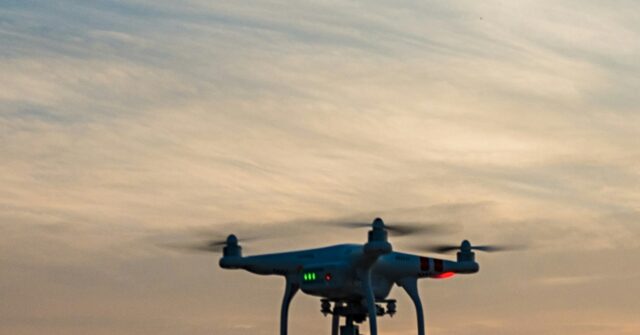In a noteworthy development, a coalition of federal agencies—including the Department of Homeland Security (DHS), Federal Aviation Administration (FAA), Federal Bureau of Investigations (FBI), and the Department of Defense (DOD)—released a joint statement addressing the surge of drone sightings above New Jersey. They assured the public that these drones do not pose a national security threat. The joint statement highlighted that over one million drones are lawfully registered with the FAA in the United States, with a myriad of commercial, hobbyist, and law enforcement drones operating in American airspace daily. This reassessment reflects the agencies’ commitment to transparency and communication in the face of rising public concern regarding the nature of drone traffic and its implications for safety and security.
The FBI has been inundated with reports, receiving over 5,000 tips related to drone sightings in a short span, culminating in approximately 100 leads that warrant further investigation. Federal agencies have mobilized resources to support local officials in probing these reports. The response includes deploying advanced detection technology to the region and utilizing trained visual observers for better situational awareness. The joint statement clarified that the drone sightings appear to consist of various types of aircraft, including lawful commercial drones, hobbyist drones, and law enforcement drones, in addition to other aerial entities like manned fixed-wing aircraft and helicopters, as well as even stars mistakenly identified as drones.
Significantly, the statement underscored that, based on current evidence, the drones hovering over military facilities in New Jersey and other regions do not constitute a security risk. It acknowledged ongoing concerns within the affected communities, recognizing their apprehension about the presence of drones, particularly near sensitive sites. The Department of Defense, in particular, has emphasized its serious approach to unauthorized airspace access, stating that coordination with federal, state, and local law enforcement authorities is a priority. Local commanders are reportedly active in ensuring appropriate detection and mitigation strategies are established in response to these drone sightings.
Amid the increasing curiosity and concern surrounding the drone activity, claims suggesting that these drones might be foreign-controlled have also been dismissed by the Pentagon. They clarified that while the drones are not operated by the U.S. military, there is no intelligence indicating they are under foreign control either. This statement has intensified the intrigue regarding the true origins and purpose of the drones, creating further mystery about who might be behind their operation along the Atlantic coast. The lack of clarity has prompted speculation and inquiries about possible surveillance or recreational activities that might explain these sightings.
Despite the ongoing apprehension and speculation, the White House has reiterated that the drones present no national security threat. The confirmation of safety helps to alleviate some public anxieties while simultaneously emphasizing the need for continuous monitoring and investigation. As the agencies refine their understanding of the drone phenomena, they stress the importance of community engagement and communication to foster a transparent environment that alleviates fears while maintaining rigorous security protocols.
In a diverging facet of the conversation surrounding recent public interest in drones, director Paul Roland Bois has released a critically acclaimed tech thriller titled “EXEMPLUM,” which adds a fictional layer to the discussions of technology’s impact on society. Much like the real-world concerns surrounding drones, the film invites viewers to explore complexities related to surveillance, privacy, and the existential crises posed by technological advancements. Its availability on various platforms may catch the attention of those intrigued by narratives that examine the intersection of modern technology and national security—a reminder that the fascination with drones can extend far beyond factual matters and spark wider cultural conversations.

